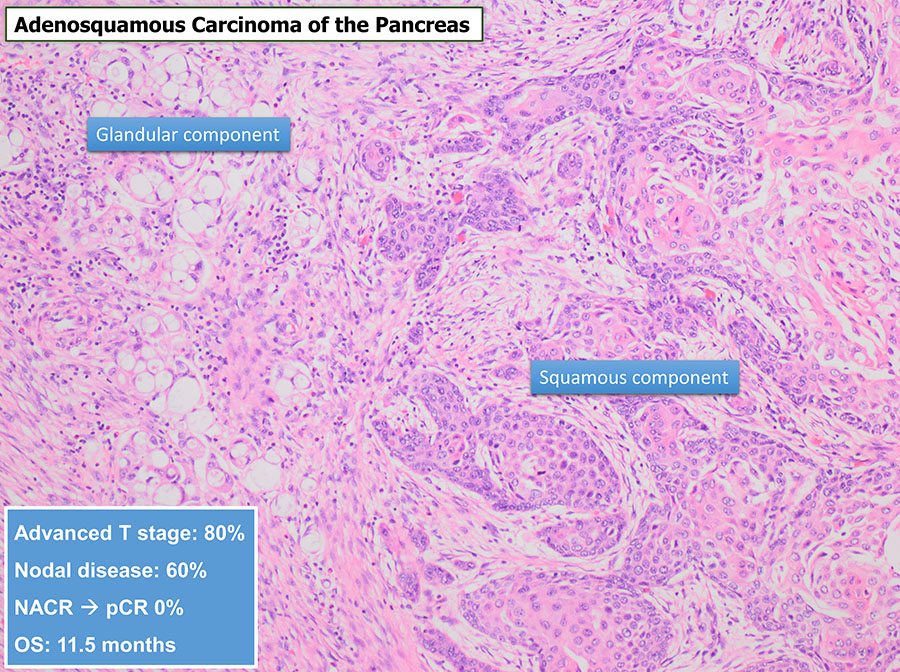
PHILADELPHIA (December 29, 2020) – Researchers at Fox Chase Cancer Center recently published a study outlining the center’s 30 years of experience with a rare form of pancreatic cancer.
Adenosquamous carcinoma of the pancreas, which constitutes less than 5% of pancreatic cancers, is a distinct and aggressive subtype that is associated with a poor prognosis, according to the study, which was led by Sanjay S. Reddy, MD, FACS. “This subtype is very rare and is underreported in the literature,” said Reddy, an associate professor in the Department of Surgical Oncology at Fox Chase.
To find out more about the clinical and histological basis of adenosquamous carcinoma of the pancreas, Reddy and colleagues reviewed the cases of 23 patients who presented for cancer care for this disease subtype at Fox Chase from 1990 to 2019.
The review revealed that the adenosquamous carcinoma subtype was more common in women than in men, and that the tumor presented in the head of the pancreas in the majority of cases.

About one-third of patients received first-line pancreatic resection, and a smaller percentage of patients received concurrent neoadjuvant chemoradiation or neoadjuvant chemotherapy.
“Most of the resected tumors were considered a T3 stage, a more advanced stage tumor,” Reddy said. “Sixty percent of these patients had positive nodal disease, suggesting the aggressive nature of the biology of the tumor.” No patients had complete pathological response to treatment.
“In sum, this is definitely a poorer variant than the typical adenocarcinoma pancreatic cancer,” Reddy said. “In these situations, neoadjuvant therapy should be strongly considered before embarking on a surgical operation.”
Reddy noted that it took a robust cancer center 30 years to treat only 23 patients with this subtype.
“Ultimately, it is important that we discuss these patients at conferences and make sure their pathology is reviewed,” Reddy said. “It does take an expert pathologist to characterize and classify these tumors, and that is where a comprehensive cancer model fits well.”
The paper, “Clinical and Histological Basis of Adenosquamous Carcinoma of the Pancreas: A 30-Year Experience,” was published in the Journal of Surgical Research.